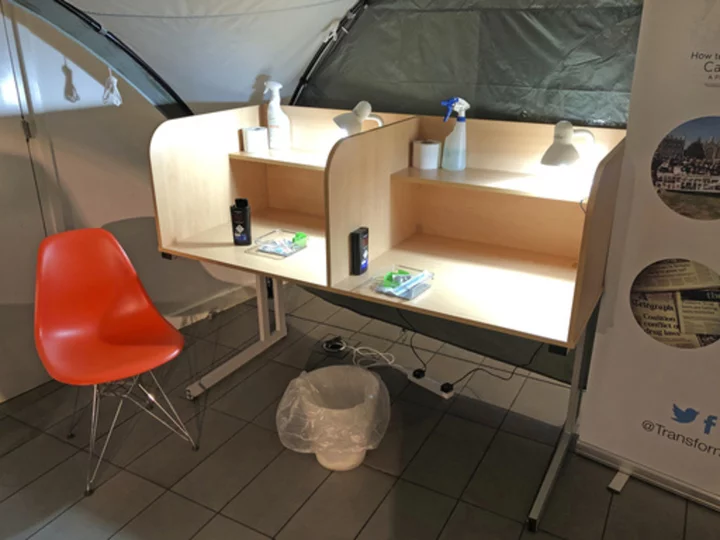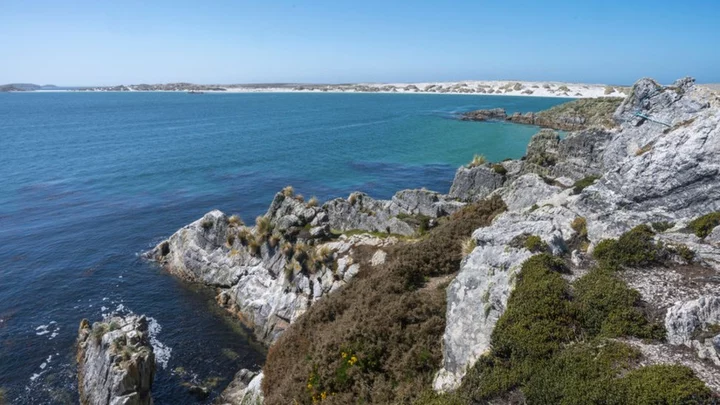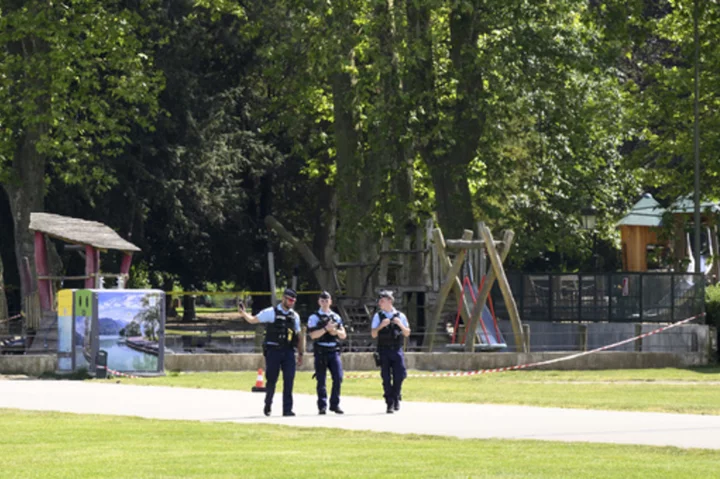US border officials are increasing personnel and transportation resources at Ajo, Arizona, one of the most isolated and dangerous areas on the Southwest border, to deal with a recent increase in migrants and an ongoing heat wave.
"Border Patrol has prioritized the quick transporting of noncitizens encountered in this desert environment, which is particularly dangerous during current weather conditions, to USBP facilities where individuals can receive medical care, food and water," a spokesperson for US Customs and Border Patrol said in a statement.
An excessive heat warning is in effect for Ajo until Sunday evening. "Dangerously hot conditions" and high temperatures of 106 to 112 degrees are expected, according to the National Weather Service.
The spike in migration at Ajo is driven by human smuggling organizations shifting the flow of migrants to some of the most dangerous terrain, including the Cabeza Prieta National Wildlife Refuge and the Organ Pipe Cactus National Monument near Ajo, according to the Border Patrol.
Currently, the average time in custody at the Ajo station is 15 hours, with some migrants spending a portion of those hours outside waiting to be transported, according to the Border Patrol. The agency said the fenced-in outdoor space is covered by a large canopy and migrants have access to large fans, meals, water, and bathroom facilities. The outdoor area is only used for adult men, while women, children, and members of vulnerable populations are held inside the station.
"USBP has utilized outdoor shaded areas only when necessary and for very short times while they await onward transportation to larger facilities," said the agency's spokesperson. "The Ajo Border Patrol Station is not equipped to hold large number of migrants due to historic trends in this area."
After arriving at Ajo Station, migrants are screened and then transported to other locations for immigration processing, with the closest large Border Patrol facility or shelter 2.5 hours away, according to the Border Patrol.
The agency would not disclose the Ajo facility's capacity to CNN, citing security concerns.
The Tucson Border Patrol sector encountered more than 24,000 migrants in June, making it the second-busiest sector on the southern border during the month, according to Border Patrol data.
Border Patrol officials report no deaths have occurred at Ajo station or the surrounding areas since the beginning of the heat wave and since the increase in migrant encounters.
Across the state, Arizonans have experienced extreme heat over the past weeks, with Phoenix recording 31 consecutive days with a high temperature of 110 degrees or above. The streak of high temperatures made July the hottest month on record for the city.









